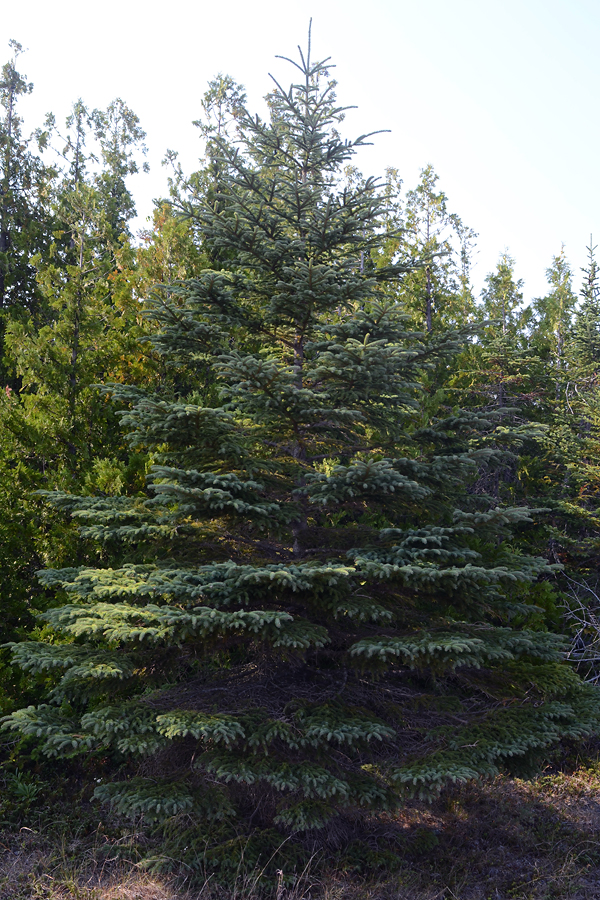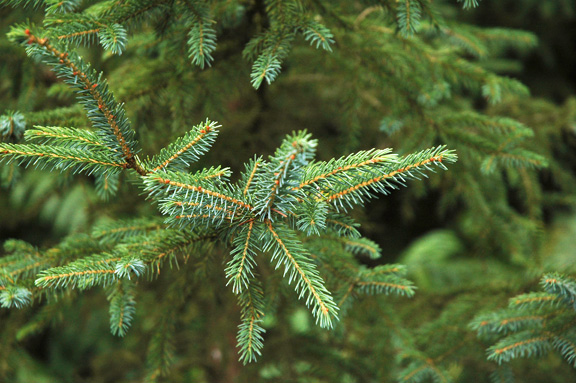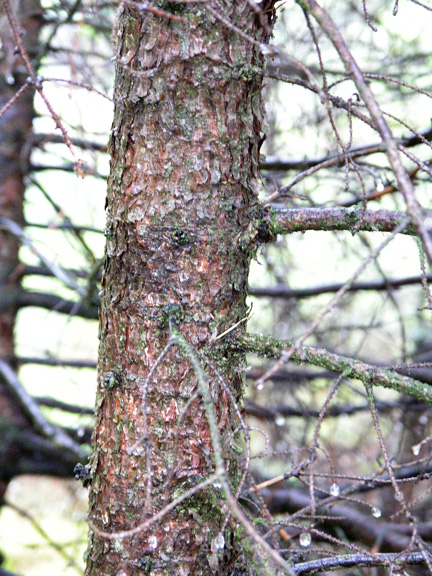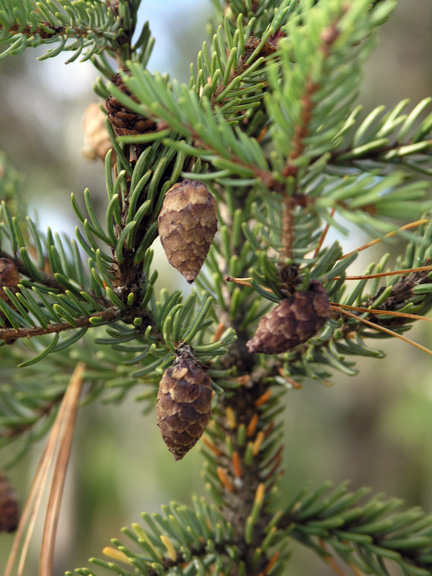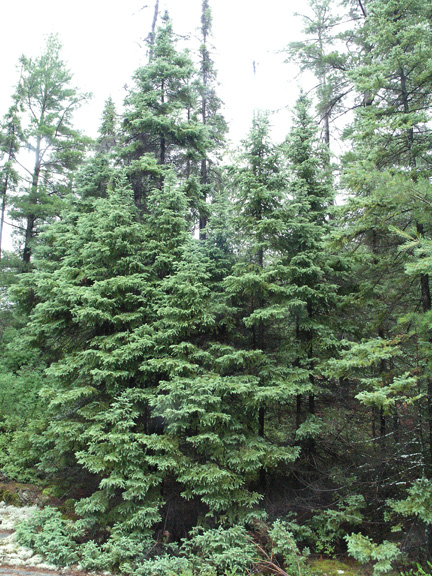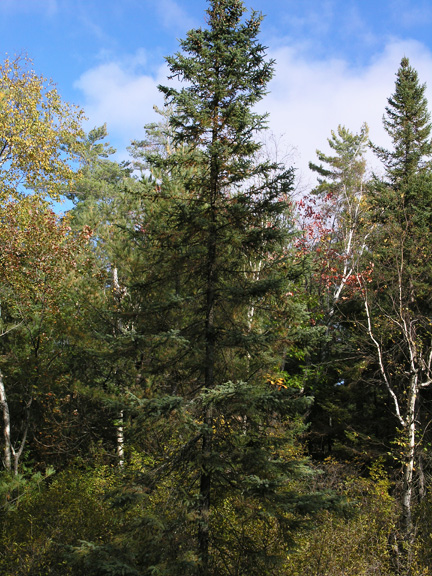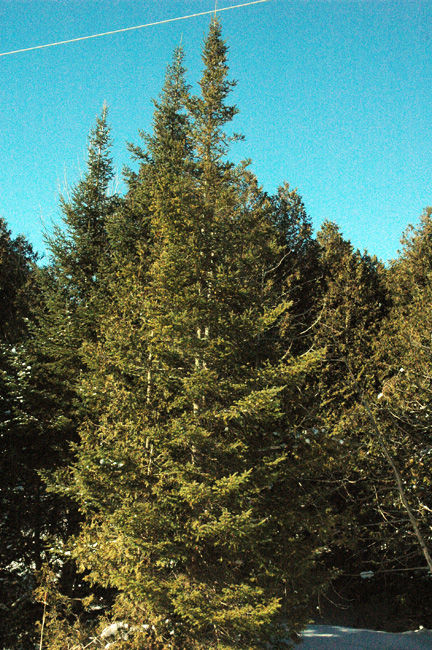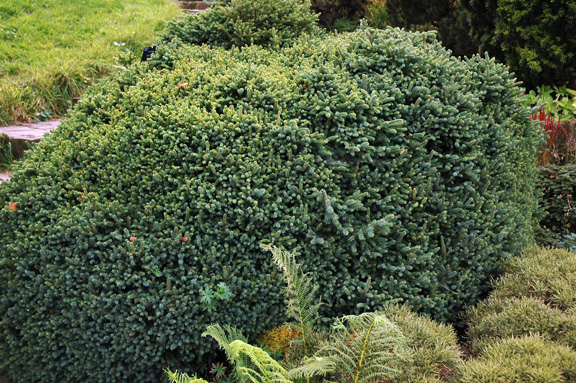
Woody > Picea > Picea mariana > Picea mariana
Picea mariana
Black Spruce
Mike's
Opinion


"
Picea mariana can thrive in many conditions, whether it being weather, site or even the soil it is growing in. This tree can grow to 18 m tall with a canopy spread of about 30 m.
Michael Pascoe, NDP., ODH., CLT., MSc. (Plant Conservation)
"
| Family |
| Pinaceae |
| Genus |
| Picea |
| Species |
| mariana |
| Category |
| Woody |
| Type |
| Tree (evergreen) |
| Pronunciation |
| USDA Hardiness Zone |
| 2-6 |
| Canadian Hardiness Zone |
| 2-5 |
| Temperature (°C) |
| -62 to 27 |
| Temperature (°F) |
| -30 to 80 |
| Height |
| 5 - 18 m |
| Spread |
| 15 - 30 m |
Photographs
Description and Growing Information
Flowering Period
| General Description |
| One of the most widespread and abundant species in North America. There have been many cultivars of the black spruce but there is one that stands out the most, Picea mariana ‘Nana’, which won the Royal Horticultural Society’s Award of Garden Merit. |
| Landscape |
| Picea mariana thrives in a moist acidic environment. It is often found in sphagnum bogs. In the north, it grows in well-drained valleys and on rocky slopes. The southernmost location of this species is Sifton Bog, London, Ontario, Canada. |
| Cultivation |
| Shape |
| Sharply pyramidal. |
| Growth |
| Fast |
| ID Characteristic |
| The compact narrow crown and the drooping branches give the tree a distinctive appearance. The twigs are covered with rust coloured hairs and when the cones are dry they can be crushed with just the fingertips. |
| Pests |
| Budworm, weevil and the dwarf mistletoe. |
| Habitat |
| Northern bogs of the boreal zone. |
| Bark/Stem Description |
| The bark is broken into thin, flaky greyish brown scales. |
| Leaf Description |
| Four sided, dull bluish green needles on twigs that are covered with rust-coloured hairs. |
| Fruit Description |
| The cones are 2- 3 cm long, spherical when open and stay on the tree for 20 - 30 years. |
| Notable Specimens |
| Sifton Bog, Oxford Street, London, Ontario, Canada. |
| Ethnobotanical Uses (Disclaimer) |
| It is used mainly in the pulp and paper industry and was formerly used to make spruce beer. The beer was made by boiling the new shoots with water, a little molasses and maple syrup. |
